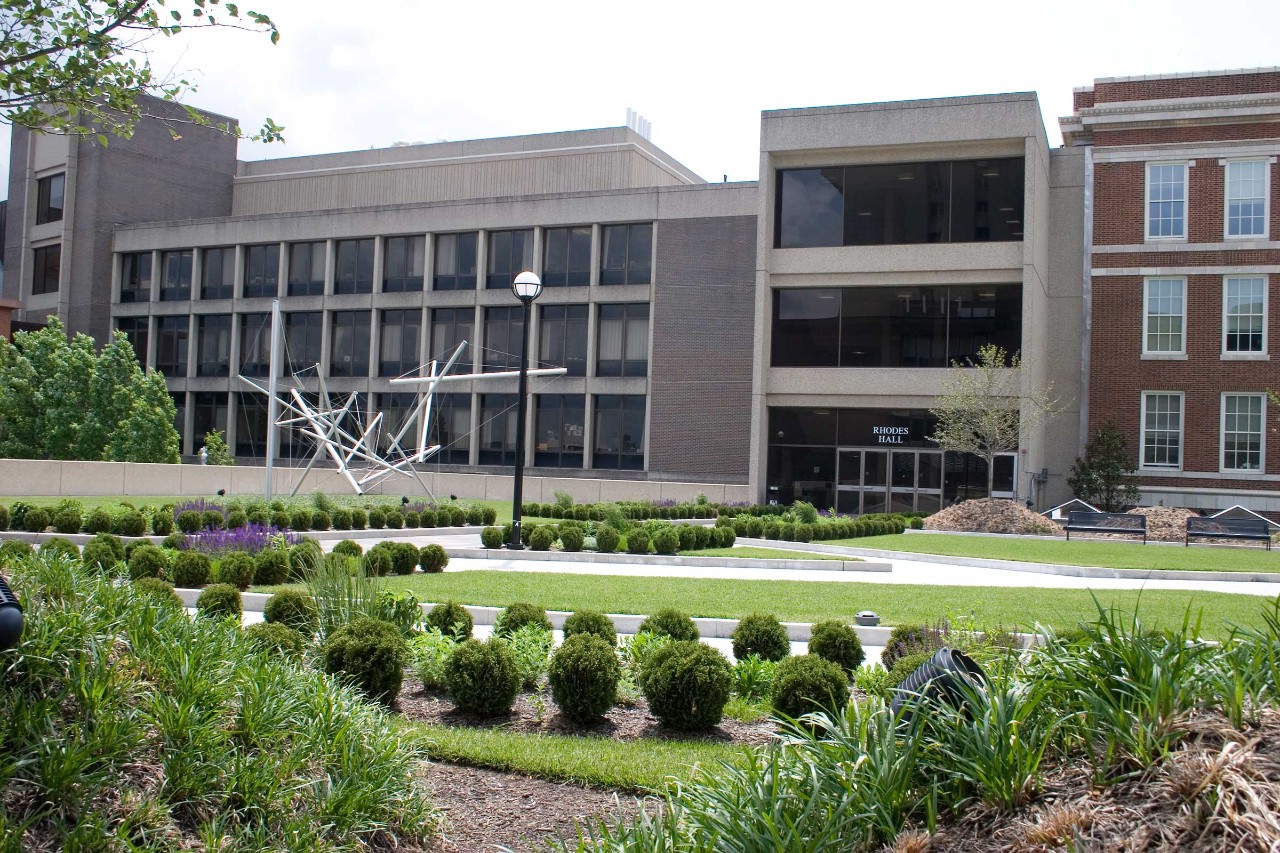
UC alum's research could predict pandemic hotspots
Faray Majid, a mechanical engineering graduate, reflects on how his UC experience impacts his career
When Faray Majid was a graduate student at the University of Cincinnati, he worked on a research project that identified future COVID-19 hotspots. As a recent graduate, he counts that work as one of his top accomplishments and he hopes it will be useful for predicting the disease path of any future pandemics.
Majid was named Graduate Student Engineer of the Month by UC’s College of Engineering and Applied Science. He earned his master’s degree in mechanical engineering in 2021.
What drew you to UC?
The comprehensive academic program along with experienced faculty in the field of mechanical engineering and AI was what drew me to UC. Also, the diverse international community and the generous scholarships that UC gives to graduate students was a factor in my decision process.
Why did you choose your field of study?
The idea of using artificial intelligence to solve real-world mechanical engineering problems was what piqued my interest in this area. I love solving complex mathematical problems and also love to write computer codes.
Describe your research work.

In my research, I worked with my adviser, Professor Manish Kumar, in the Cooperative Distributed Systems lab to develop a model to predict the spread of COVID infection in the U.S. Our goal was to accurately predict the hot spot areas which might occur over the next two weeks using historical data. We started this project in summer 2020. Being an international student, that was the most depressing and uncertain phase of my life and I saw this as an opportunity to use my role as an engineer and a researcher to play my part in fighting against the global pandemic.
We developed our models which accurately predicted the infection spread in the state of Ohio as well as Hamilton county. Our work was published in the ISA Transactions journal as well as the Modeling, Estimation and Controls Conference in 2021. In the future, we plan on developing this project further so that we can have a system to help policymakers identify the hotspots which might come up in the near future and adjust policies accordingly, if we are to encounter another pandemic.
What accomplishments bring you the most pride?
For me, a major motivation and driving force behind my work was being part of a research group and working on a project with the ultimate goal of becoming something that can possibly help save human lives. Being able to publish our work in recognized journals and assisting new motivated grad students who are currently working on it has been an accomplishment I am very proud of from my time at UC.
What have you been doing since you graduated in December 2021?
I am currently a data scientist at Afiniti, where I am working on optimizing and improving human interactions and behavior using data science. The courses and the research at UC helped in preparing me technically for my current job. Also, working as a team in a collaborative environment was something I learned from my research group which is essential in the workplace.
How did you spend your time at UC outside of the classroom and lab?
I am a big fan of the outdoors and I loved the summers I spent in Cincinnati. Since the city is so close to so many great parks, lakes and forests, there a ton of activities to do in the summers including hiking, swimming, kayaking, caving, biking etc. that is one thing that made me fall in love with this place.
I was also the general secretary of Pakistan Student Association and was part of organizing a couple of very vibrant and engaging events to spread awareness among the students at UC about Pakistani culture.
Related Stories
Alumnus makes $3 million estate gift to UC’s College-Conservatory of Music
February 16, 2026
A $3 million gift from the estate of Barry Mitchell, CEAS ’82, will benefit the University of Cincinnati College-Conservatory of Music (CCM). This donation will establish the Barry L. Mitchell Endowed Chair and Barry L. Mitchell Music Endowed Scholarship Fund at CCM.
A century of Bearcats in the family
February 16, 2026
When Eloise Brown was deciding where to go to college, she spoke to a family friend who was an environmental engineering professor at the University of Cincinnati and realized UC's engineering program would be a great fit for her. She decided to make the move to Cincinnati, continuing a family legacy at the College of Engineering and Applied Science.
UC Alumni Association names top alumni award winners
February 12, 2026
The University of Cincinnati Alumni Association has announced this year’s recipients of its highest honors for UC alumni. The 2026 honorees include: Vinod K. Dham, CEAS ’77; Thomas D. Cassady, A&S ’76, Hon ’19; Padma Chebrolu, CECH ’92; Ryan C. Marable, PharmD, Phar ’13. Each year, the UC Alumni Association (UCAA) honors a select few of its more than 360,000 alumni based on their career accomplishments and contributions to the university and community, recognizing them during Alumni Week festivities each spring.
